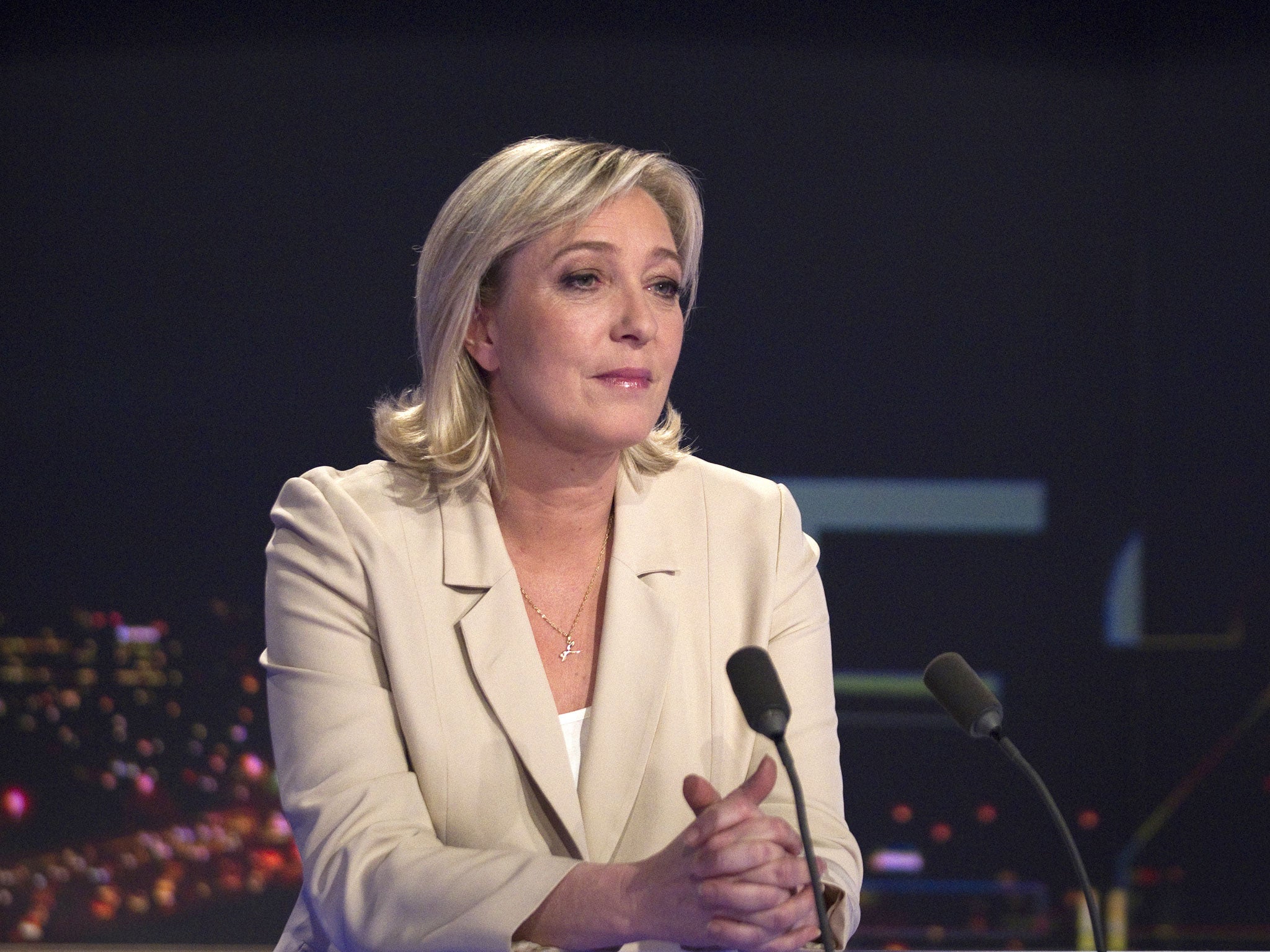The Cambridge Union is not BBC 'Question Time' – let Marine Le Pen speak
There's a difference between Nick Griffin showboating for votes on national television and Le Pen exposing her views to the ridicule of a few curious students

A storm is brewing: Marine Le Pen, leader of the French far-right Front National party, is set to speak at the Cambridge University Union tomorrow. The critics say that giving the MEP – who was re-elected for the second time in 2009 – a platform to speak at the Cambridge Union gives her ideas legitimacy and free publicity. Aaron Kiely, NUS Black Students’ Officer, has even demanded “the invitation to fascist Marine Le Pen [be] withdrawn immediately.”
Yet the woman who received nearly 4.5 million votes in last year’s French elections does not need free publicity. Indeed, the FN are now mainstream – it was only ten days ago that she appeared on BBC News supporting David Cameron’s stance on Europe.
Instead of continuing a prolonged debate about whether we should give the far right a platform, we should look at the very specific context here. Firstly, it is undeniable the Cambridge Union have proven themselves to be foolish in inviting Le Pen in the same week that the English Defence League will be marching through Cambridge. Next, Le Pen will not be on Question Time or any television show watched by a large number of the British population. Instead, she will be speaking to a small audience, predominantly made up of students and this makes a fundamental difference.
Included in the list of those attending the private members-only club will be students who want to find out more about her ideology. After all, a large part of the detailed commentary about the rise of the Front National and Marine Le Pen herself is in French and this will be an opportunity to learn more about exactly what she stands for – especially when her views appear to differ fairly drastically from those of her father. There will also be students who are studying the rise of the far right and the Front National in particular. It is one thing to read about and research a person’s views but an entirely different proposition to have the chance to question their stance in true Paxmanesque-style and make them squirm.
Remember that the environment in the Cambridge Union will be an academic one. Those in the auditorium will at the very least have a brief background of Le Pen and will know to be sceptical of the dangerous words being uttered. In a show such as Question Time, however, many viewers only find out about the politicians’ opinions – and occasionally even the politicians themselves – for the first time, and the argument for no platform is stronger (but one I would still oppose).
That the event is geared towards British students also changes the dynamic entirely. Le Pen will not be looking for new votes, instead her aim will be prove that she is a reasonable politician whose ideas no longer belong to an irrelevant fringe of society. She will no doubt downplay the xenophobic and extreme right wing tenets that formed the backbone of the Front National under her father and instead focus on increasing Euroscepticism and the changing role of Europe, as well as the failure of multiculturalism – both points made by the Prime Minister in recent years – in a ploy to prove her credentials. Yet those in the audience will be well aware of this and will in fact be on the lookout for the same tactics she has deployed since taking over the party leadership.
Once her speech is over, the audience will be able to challenge her not only on the issues that she wants to speak about but also on the more extreme, racist and Islamophobic tendencies of the party. Unlike a television audience, many of whom might only have vague notions of what a politician might stand for, students will force an answer on subjects that she has tried to avoid. Has the Front National truly undergone a transformation since the departure of Jean-Marie or is it only the party leadership that is different?
One thing, however, is for certain. Come tomorrow, Marine Le Pen will be looking to prove that she belongs in the mainstream and it will be up to the audience to show her just how wrong she is, and why nationalist parties such as her British counterpart the BNP do not have a place in British society.
Join our commenting forum
Join thought-provoking conversations, follow other Independent readers and see their replies
Comments
Bookmark popover
Removed from bookmarks